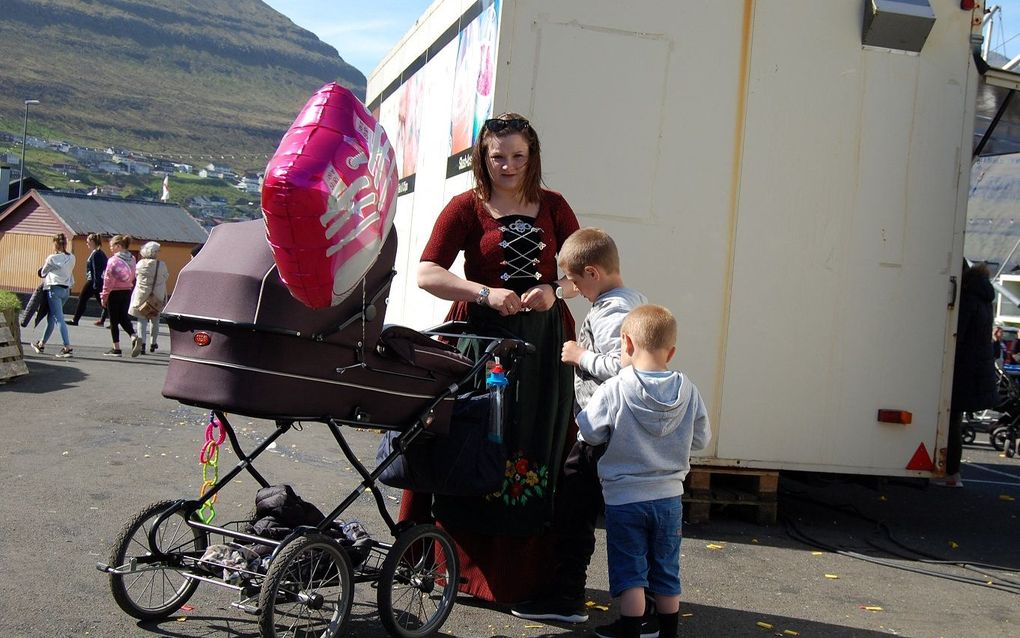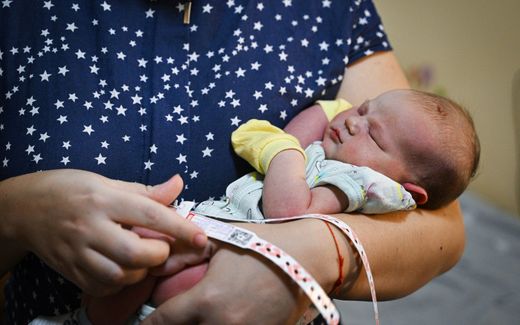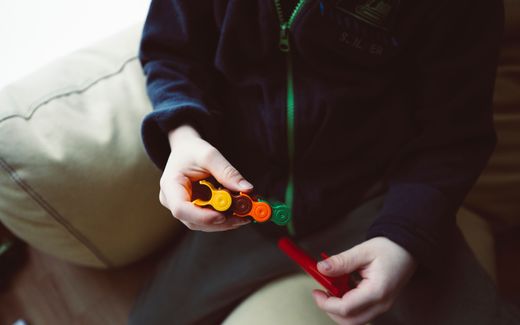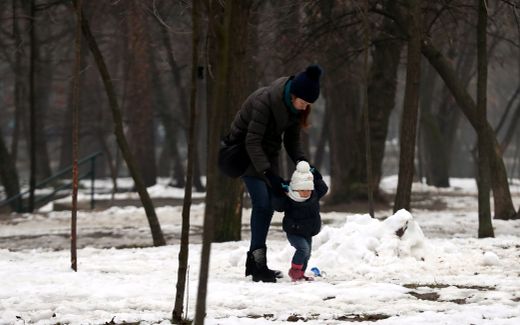Longer maternity leave improves well-being of children, Danish research shows

A woman in traditional outfit attends her children during a festival in Klaksvík, on the island of Borooy, one of the Faroe Islands located between the North Atlantic Ocean and Norwegian Sea. Photo AFP, Pierre-Henry Deshayes
Northern Europe
Children whose parents take more extended maternity leave after birth are generally doing well. That is shown by Danish research. Thus, a shorter maternity leave can have negative consequences on the child's wellbeing, researchers argue.
In 2002, the Danish government introduced longer periods of maternity leave. Mothers could, for example, take an additional three months off compared to the period before the reform. This had a visible positive impact on the wellbeing of children born after the change, researcher Miriam Gensowski writes on the website of the Rockwool Foundation. On average, the wellbeing of children increased by 4.8 per cent for each additional month of maternity leave, Genosowski discovered. In practice, that means that 1 in five children reported being happy to go to school more often, she states.
In addition, children whose mothers had stayed home with them for a longer period also had better socio-emotional skills, such as emotional stability, the researcher writes. These skills are different from cognitive skills, such as IQ and school performance, but do influence future health and income, possibly just as much.
Inequality
Furthermore, longer parental leave reduces inequality in children's well-being, Gensowski writes. Remarkable was that the extended leave benefited formerly disadvantaged children the most. They were less absent from school and had higher marks in the ninth grade.
The positive effects of a longer leave could be explained by the so-called "attachment theory", according to the researchers. This theory argues that postponing the age at which a child is separated from his parents can positively affect their social development. The researchers, therefore, warn that an extended period of parental leave should not be accompanied by sending children earlier to daycares, as this "risks increasing the inequality at the same time."
Fathers
Last year, the Danish government introduced measures to stimulate fathers to partake more in family life. Therefore, the authorities increased the parental leave for fathers from 2 to 11 weeks while decreasing the number of weeks for mothers.
However, there are fears that fathers will not use the possibility of extended leave maximally. That would mean that the total amount of parental leave would decrease as mothers decrease their leave, Gensowski states. Because that would shorten the total maternity leave, which can have negative consequences for children.
Preliminary figures already show that the total length of maternal leave has decreased. However, the researcher also acknowledges that it is too early to determine whether this happens in practice.
Related Articles









